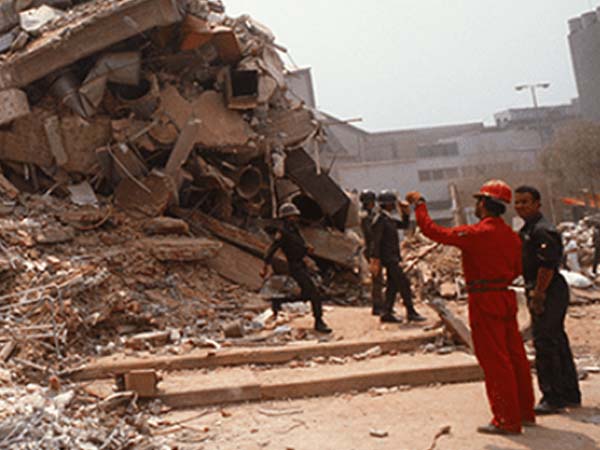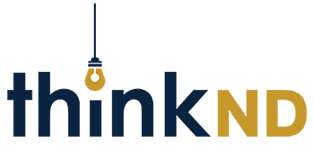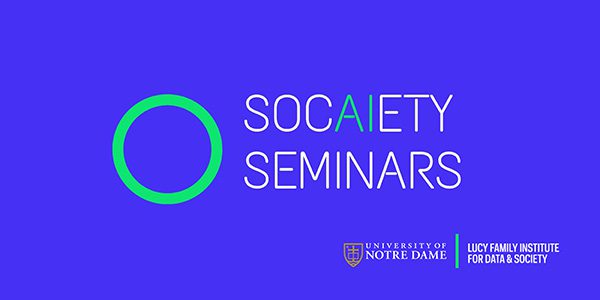Literature & Film in Lockdown – Camus, “The Plague”
Subscribe to the ThinkND podcast on Apple, Spotify, or Google.
Featured Speakers:
- Susan Ohmer, The William T. and Helen Kuhn Carey Associate Professor of Modern Communication, University of Notre Dame
- Kieron Webb, Head of Conservation, British Film Institute
- Rev. Jim Lies C.S.C., Director for Academic Initiatives & Partnerships, University of Notre Dame, London, England
The fourth and final installment of the Literature and Film in Lockdown series discussed “The Plague” written by Albert Camus. This novel was written in 1947 by an author who had no firsthand experience of living through a plague, but instead simply imagined what the experience would be like. The session featured Barry McCrea, a Professor of English and the Donald R. Keough Family Professor of Irish Studies at the University of Notre Dame, as the presenter and Lisa Caulfield, the Director of the Notre Dame Global Center at Kylemore Abbey, as the moderator. This final session of the series covered topics previously discussed in order to allow the participants to have a sense of closure and clear takeaways from the series as a whole. The final novel to be discussed served as a culmination of the series and the themes that McCrea sought to leave the participants with.
McCrea kicked off the session by introducing the novel. Though Camus did not live through a pandemic or lockdown, he uses the setting of a plague as an allegory for the human condition. Through a circumstance that emphasizes death, the author highlights the fact that life always comes to an end. McCrea then built on the themes he introduced in previous sessions by illustrating to the participants the point at which those experiencing a pandemic begin to view the world differently, forgetting the old normal and forming a new one. The characters in the novel experience a disruption of their ambitions and plans for the future, and McCrea questioned how humanity copes with this disruption and the inability to view the future as something that can be predicted. McCrea again emphasized the importance of experiencing a plague collectively, especially as the world returns to normal. Though the return to the old normal is the hope that many are clinging to, “The Plague” suggests that transitioning out of a pandemic is harder than transitioning into it. McCrea concluded his presentation by highlighting the hope that can be found in the opportunity to learn something through the collective experience of a pandemic and lockdown. Living in the present is all that humanity has to cling to in a time of uncertainty, and the author encourages the reader to glean meaning from what is present in the current moment.
To begin the question and answer portion of the session, Caulfield and McCrea compared and contrasted the five parts of the novel with the five stages of grief, finding many similarities between the acceptance of grief and the acceptance of a circumstance that halts normal life. McCrea emphasized that everyone’s experience of the pandemic is different with everyone moving through these stages in a different order and at a different pace. McCrea then moved to discuss the symbolism of a specific character in the novel, Joseph Grand, a writer obsessed with finding the perfect language to include in the book he is attempting to write. This character suggests to the reader that life is a series of endless beginnings that cannot be predicted. Perfection is an impossibility and attempting to achieve it is a senseless waste of time.
In addressing further questions, McCrea altered his focus to address the author’s emphasis of the present. The novel is not interested in romantic love or passionate friendship. Instead, the characters make the best of who is next to them and cultivate relationships with those that are sharing the same experiences. The final point addressed by McCrea was the theme of humility and courage throughout the novel. To reiterate the novel’s focus on the present moment, the courage demonstrated throughout the story is a humble courage. The heroes of the story are not those who strive to be extraordinary and save the world, but those who accept their position and are comfortable with their normality. They see all of humanity as equal and understand the smallness of individuals, the shortness of life, the limitations of humanity and the inevitability of death. McCrea ended the session by saying that although the heroes in the novel are not the kind of characters a reader would normally fall in love with, the novel demonstrates that anyone can be the protagonist or the hero.
- At some point during one’s experience of a plague, what was once thought of as a deviation from normal life becomes the new normal. (7:52)
- The present should be treasured. The future is unknowable and cannot be planned for, so meaning should be gleaned from the situation one is currently in. (12:55)
- Everyone’s experience of a pandemic is different and the timing of each stage of acceptance varies for each individual. (33:15)
- Life is a collection of endless beginnings. There is no sense in trying to get everything perfect when perfection is an impossibility. (37:20)
- The real heroes in “The Plague” are those who choose to be ordinary, those who accept their smallness and have the courage to understand that all of humanity is the same. (58:31)
- “The novel in many different ways at the end suggests that it’s maybe even harder to come out of lockdown than it is to go in.” (Barry McCrea, 11:13)
- “Camus seems to suggest that perfect justice or the perfect language are both impossibilities, and appealing to them does more harm than good.” (Barry McCrea), 37:20)
- “It is more interested in accepting where you are, who’s next to you and building on that.” (Barry McCrea, 43:04)
- “The meaning of a human life is not in what it plans to do, how great it’s going to be, how exceptional it’s going to be, but what it is not and what it is building with what and who is around it right at that moment.” (Barry McCrea, 53:31)
- “We don’t know what of our lives before the pandemic we’re going to remember after it.” (Barry McCrea, 55:44)
- “What’s not courageous is to be exceptional, to try to stand out and be praised, but the true courage is to accept at the very deepest level that one is completely ordinary.” (Barry McCrea, 58:31)
Related Content
Climate Change and The Limits of Narrative
Join the Kellogg Institute for the introductory session of a workshop refining Kellogg Faculty Fellow Roy Scranton’s draft book project “Ethical Pessimism: Climate Change and...
View EventReunion 2024
Alumni Education Programming Click each program title to learn more. ND Perspectives: Election 2024 and the Future of Democracy in the U.S. The 2024 presidential election looms...
Read ArticleA Brave New World of AI Governance
Explore the connection between data, geopolitics and governance, regulation, self-regulation while discovering examples of good and bad practices in various sectors, such as...
View Event


